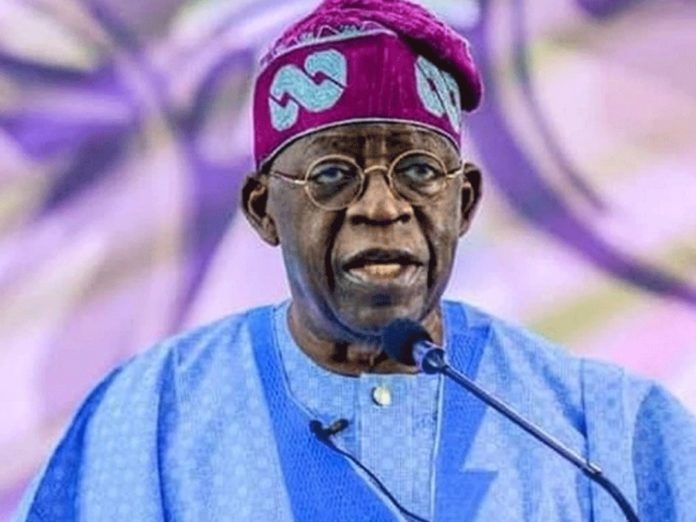The Weight of a Birthday in Troubled Times
As the dawn of March 29, 2025, breaks over Aso Rock on President Bola Ahmed Tinubu’s 73rd birthday, the atmosphere is not just with the usual pomp of presidential birthdays, but with the urgency of a nation biding its breath. Two years after what had been promised as an era of “Renewed Hope,” Nigeria is poised at the threshold of a paradoxical era, an era where technocrats celebrate policy boldness but market women wail over their vacant stalls, security agents declare tactical victories but villagers still sleep with their eye open, and macroeconomic indicators register green shoots while pots at home remain unimaginably bare. This is not another presidential birthday; it is a test of the conscience of Nigerian democracy.
Do we celebrate a leader who has made tough decisions, or mourn the collateral damage of those decisions? Does courage in leadership warrant its price in human lives? As we look at Tinubu’s 73rd year, we have to do so with the accuracy of economists and the compassion of poets, because Nigeria’s narrative today is not only written in policy briefs but in the creases on weary faces in 36 states. The Economy; Between Shock Therapy and Systemic Shock When the historians narrate the Tinubu presidency, May 29, 2023 will be etched forever as the date Nigeria’s economic trajectory was recalibrated by force. The double declarations of the removal of fuel subsidy and floatation of naira were not just policy realignments but also existentialist philosophical recalibrations, the kind that remake or break nations.
The phased-out subsidy, over years demanded by IMF economists and previous administrations, was executed with rapid efficiency. Overnight, petrol prices leaped from ₦185 to more than ₦500 a liter, before settling at a throat-bulging ₦950. The naira, in its newfound freedom from manufactured anchor, plummeted into sudden free-fall, the official rate dropping from ₦461 to ₦1,250 against the American dollar while the parallel market laughed scornfully at ₦1,500.
The human price was instantaneous and biblical. The Onitsha market women watched their capital melting away as overnight transport fares tripled. Lagos middle-class families began tallying the number of meals they could forego. “I had to withdraw from school,” said a student. Hostel fees could now be paid in dollars. The National Bureau of Statistics has indicated that, as of Q4 2024, 133 million Nigerians had entered multidimensional poverty – a figure that troubles the nation’s conscience.
But proponents of these policies point to structural benefits now being obtained. The ₦400 billion monthly subsidy drain has stopped, and the money is going into infrastructure. The Dangote Refinery, long at last operational, begins to reduce import dependence. Foreign investors, long skeptical about Nigeria’s exchange rate manipulation, are cautiously returning, attracted by what the Financial Times called “Africa’s boldest market correction.”
The hard truth maybe is that Nigeria had to be subjected to this economic shock therapy.
The harsher truth is that its execution, the palliative measures, the social cushions was woefully inept.
There was a success policy like the student loan scheme (1.2 million applications received) for each five failures like the projected CNG buses that never saw the light of day. The economy stands at the crossroads today: if these reforms bear fruit in the next two years, Tinubu can be celebrated as Nigeria’s Margaret Thatcher. If they fail, history will not be kind. Security; The Phantom of Peace In the Zamfara forests and Niger State farmlands, Tinubu’s security record is being written in blood and bullets. The statistics scream counter-narratives – of advancement and constant peril. The military’s “Operation Forest Sanity” has disarmed 1,200 bandits and reclaimed territories. The “No Fly Zone” declaration over Zamfara’s gold mines derailed the deadly arms-for-gold business that financed violence. Navy operations in the Niger Delta reduced oil theft by 62%, providing some fiscal relief.
But walk through any North rural market, and you’ll hear a different story. The Kaduna-Abuja road remains a kidnappers’ boulevard even with military patrols along the route. Borno State, while no longer controlled by Boko Haram territory, is plagued by periodic suicide bombings that kill more civilians than troops. The most damning statistic? 4,371 kidnappings in 2024 alone – a statistic that mocks the notion of security.
The truth is that Tinubu inherited a security architecture already in shambles. His attempts to reorder it – increased defense spending, community policing initiatives, regional security alliances – are commendable but inadequate. As a doctor who treats symptoms without curing the disease, the administration fights bandits but not the unemployment and governance failure that beget them. Security successes will be precarious until that changes.
Infrastructure; Monuments or Mirage?
The Lagos-Calabar Coastal Highway winds its way along the Atlantic coast like a concrete promise. At 20% completion, it’s already the most ambitious infrastructure project in Africa, working 12,000 people a day. The Second Niger Bridge, now open, takes 32,000 vehicles a day between the East and West.
But these shining projects exist alongside ghostly vacuums. Nigeria’s busiest road, the Lagos-Ibadan Expressway, remains frustratingly unfinished. The East-West Road in the Niger Delta remains a death trap. And while Ajaokuta Steel’s first production line finally thunders after 42 years of inactivity, most Nigerian factories operate at 40% capacity due to power cuts.
Tinubu’s infrastructure record hides a deeper contradiction in his leadership – between vision projects and needs. Yes, future generations will celebrate the coastal highway. But what of children today who are learning under trees because classrooms never came? The government must balance legacy projects with development at the grassroots level, or else it builds monuments on quicksand.
The Birthday Question; To Celebrate or Not
While President Tinubu turns 73 today, Nigeria stands at a crossroads. The overtures are large, but still in the germination stage. The wins at security are palpable, yet fleeting. The visions for the infrastructure are huge, but unbuilt.
Perhaps the sanest judgment is not made by partisan apologists or bitter detractors, but by an exasperated, disheartened Nigerian youth who told me: “We’re suffering, yes. But my fear is, I don’t think it’s getting better, with this set of leaders around, Nigeria may never get better.”

Ajiboye Amos Olakunle
Happy Birthday, Mr. President. May the rest of your days be as you’ve done to Nigeria.



























